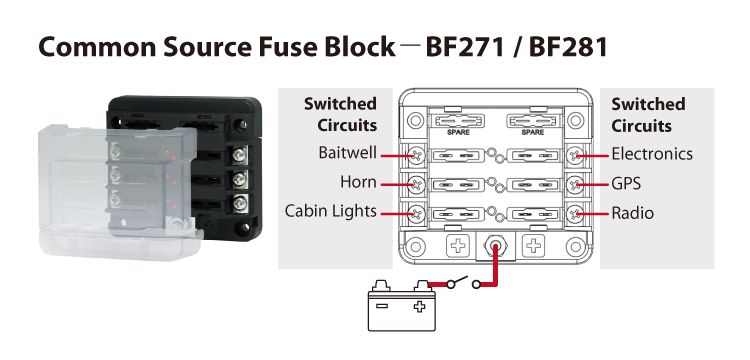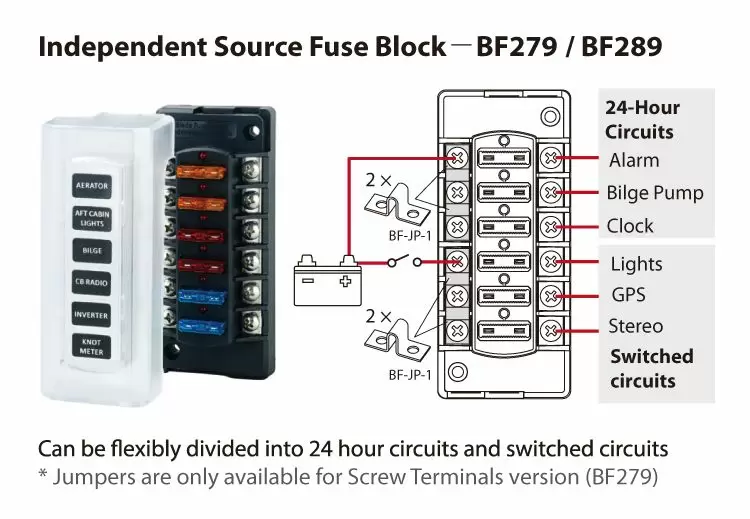What are the differences between common source and independent fuse blocks?
When choosing a fuse block for electrical systems, understanding the differences between common source and independent fuse blocks is important. Both serve to protect circuits by housing fuses, but their structural and functional differences determine how they fit into your application. Here’s a clear breakdown to help you make an informed choice:
Common Source Fuse Blocks
In a common source fuse block, all fuse slots draw power from a single input terminal. This setup simplifies the wiring and is cost-effective, making it ideal for applications like automotive or marine systems where multiple devices operate on the same voltage.
▶Advantages:
1. Distributes power while protecting each circuit.
2. Easier to install and manage.
3. Reduced wiring complexity.
▶Limitations:
1. A fault in the power source affects all circuits.
2. Limited flexibility if circuits require different power sources.
Independent Fuse Blocks
Each fuse slot in an independent fuse block is linked to a separate power input. This design ensures complete isolation between circuits, making it versatile for systems that need to manage multiple voltages or isolated circuits. Example: Marine applications requiring isolated power for sensitive equipment like navigation systems and pumps.
▶Advantages:
1. Enhanced safety due to circuit isolation.
2. Ideal for complex systems with diverse power needs.
3. Jumpers can be used to group circuits into same power source.
▶Limitations:
1. More wiring required.
2. Higher installation and material costs.
| Feature | Common Source Fuse Block | Independent Fuse Block |
|---|---|---|
| Power Source | Shares a single power input across multiple fuse slots. | Each fuse slot is connected to its own power input. |
| Wiring Complexity | Simpler wiring, as one power source feeds all circuits. | Requires separate power lines for each fuse slot. |
| Applications | Ideal for systems with multiple circuits sharing the same voltage or current supply. | Suitable for applications with varied power sources or voltages. |
| Cost Efficiency | More cost-effective due to fewer components and wiring. | Higher cost because of individual power connections. |
| Isolation | All circuits are interdependent on the single power input. | Completely isolated circuits, enhancing flexibility and safety. |
When to Choose Which?::Common Source Fuse Blocks are best for simple systems where all circuits operate under the same power conditions, such as car lighting or small boat electrical panels.
Independent Fuse Blocks are suited for complex setups like industrial machinery or multi-power marine systems where circuit isolation is important. For example, some circuits under battery main switch that turns off when leaving the boat and other crucial circuits connected under 24 hours powered circuits.
If you need further assistance selecting the right fuse block for your system, contact YIS Marine sales team for tailored advice.


